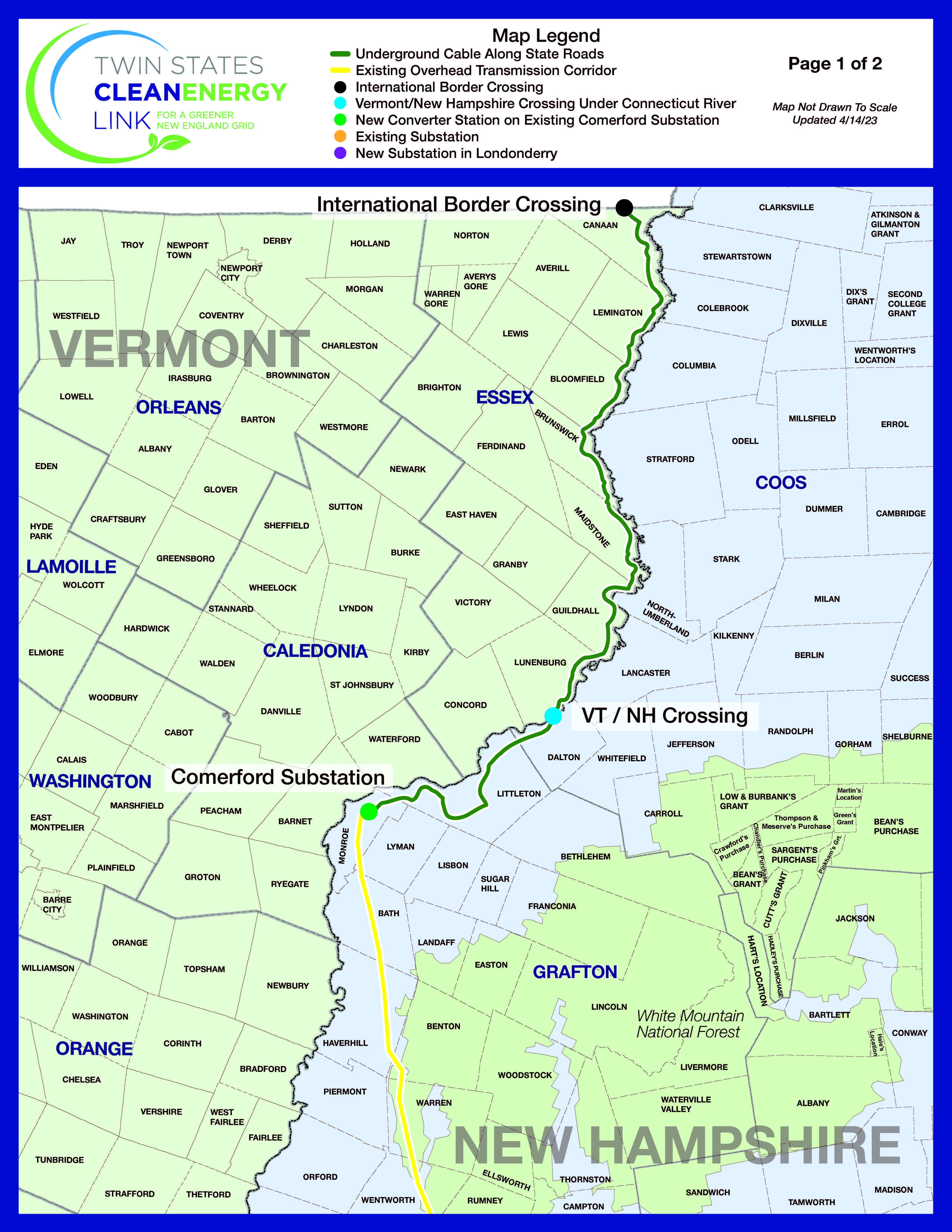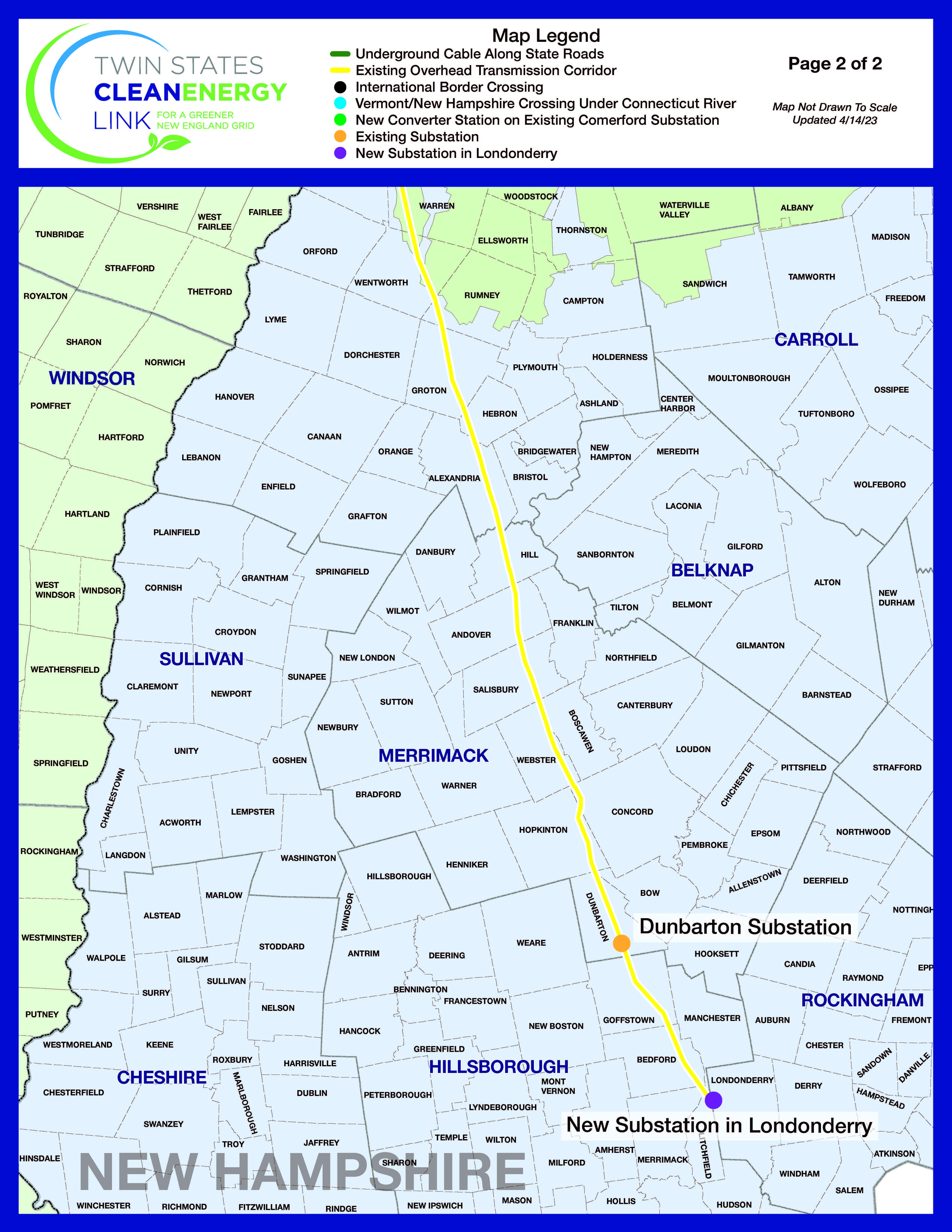- Tags:
- Advocacy

(Courtesy of Twin States Clean Energy Link. See page 2 of the map below.)
“We are well aware of the Twin States proposal and are in touch with the developers to learn more details,” said Jack Savage, president of the Forest Society.
“We are reserving judgement regarding this proposal until we learn more about it. Among the Forest Society’s priorities will be assessing any direct and indirect impacts on existing conserved lands,” Savage said. “We and other land trusts and agencies who own conserved land and hold conservation easements have legal obligations to defend those lands from commercial development. We’ll want to take a more detailed look at the proposed route.”
“We recognize the effort National Grid is making to use undergrounding along existing roadways. We also acknowledge the proposed use of National Grid’s existing HVDC transmission corridor. Both are strategies for seeking to minimize adverse impacts in comparison with a new, overhead transmission line,” Savage said. “A common question from many who opposed the 192-mile Northern Pass proposal was why that existing HVDC corridor couldn’t be used instead to host additional transmission capacity.”
In opposing Northern Pass, the Forest Society did not take a position on the concept of importing additional large scale hydro power coming down out of Canada.
“It’s clearly renewable,” Savage said. “Whether it’s 'clean,' whether it will be less costly, whether Hydro-Quebec has the existing capacity to send to New England when we most need it, and whether any arrangement to buy the power will in fact reduce emissions from fossil fuels, are open questions that we look forward to learning more about.”

Learn more:
- Read about the proposal on the website for the Twin States Clean Energy Link project.
- NH Bulletin: What we know about Twin States Clean Energy Link, a hydropower transmission proposal
- Concord Monitor: Call It a Cousin of Northern Pass
- InDepthNH: Sununu Enthusiastically Supports Twin States Hydro
